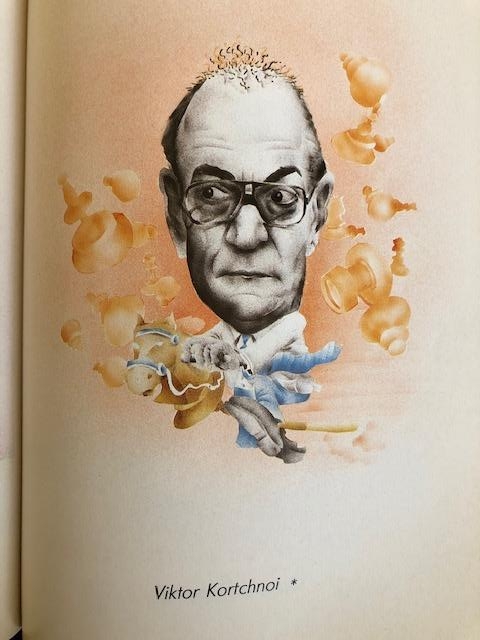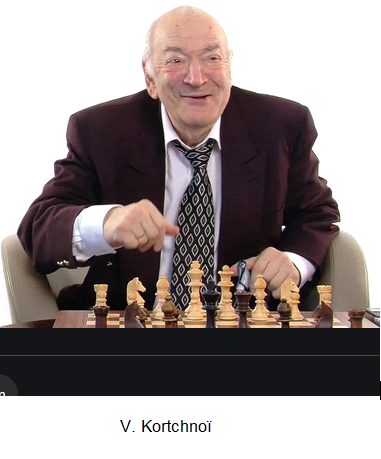Master's words
Three unexpected ZZs with minor pieces, forcing the defender to a... pawn-shortened push.
Another more complex ZZ from the Ukrainian genius, current world champion, whom we appreciate not only for his immense talent, but also because he does not keep his tongue in his pocket. To understand the first move, you have to go... to the 7th. The usual pairs of conjugated squares wK/bK are replaced here by a trio of... corresponding squares wR/bN. The latter are not "conjugated", in the theoretical sense of the word, since we are only examining White's line. On the other hand, there are two pairs of conjugated squares wR/bK with the Knight in e8. This pentalogy is one of the most fascinating I have ever seen. Everything is, as usual in our work, fully comprehensible, albeit from the inhuman cybermonster. Speaking of the (study compo) world championship, I give you my prediction for the following: the (repeat) winner will have the initials OP! (clerk's note: confirmed a posteriori at http://www.wfcc.ch/competitions/composing/wcci6res/)
A Bishop and pawn vs. pawn endgame which becomes a strange Queen's endgame..., but without any technique! I wanted to give this exercise for the "re-entry", but three months is too much!
When the computer is -- once again -- at the service of beauty... Three minor promotions in reply to the three main defenses of a black Queen, facing two white Rooks.
The lion died tonight.


This song by Henri Salvador was applied a few days ago: after the death of the world's greatest problem composer (V. Roudenko), the death of the most combative player in history, with incomparable longevity, occurred. Viktor Kortchnoi was, as has been said (forgetting Kérès, however), the "strongest player not to have been a world champion". He would have been without the Karpov miracle, as Keres without the Tal miracle.
He also had the prize for courage, having supported Fischer in the middle of the "Soviet paradise", and ended up leaving the said paradise the year Judit Polgar was born, that is exactly 40 years ago. Two quotes, the first of which he liked to capture. "The role of footballers is to encourage people to drink less alcohol; your role, chess masters, is to encourage people to read less Solzhenitsyn! ". The other one of S. Ivanov describing him perfectly: "VK likes Chess itself, rather than himself in Chess". To say that this profession of faith became a rarity would be to seek a polemic which would be messy in this circumstance.

I learned about the existence of Kortchnoi when I was 14 years old and in high school. He had just won the USSR championship for the first time, in his home town of St Petersburg (which had an infamous name at the time). This tournament had been an incredible epic, he had gone through all the extremes, scoring a point at the end of the nightmare (against Shamkovich), losing in a winning situation for having touched a piece and having to play it (against Baguirov), having to play an Alekhine defence to try, and succeed, to score the whole point against his main rival Geller, finally in the last round, where he had to win (against the theorist Suetin), having an equally nightmarish position with White at the end of the opening. But all went well, the rage to win being, in the end, rewarded. This model of willpower and imperviousness to misfortune has continued to work in my mind, throughout my career as a small player.
We give some excerpts from games, but focus mainly on another game against Geller, played 6 years earlier, when Viktor was 23 years old and playing his 2nd championship (where he finished 2nd ex-aequo behind Averbach). We also refer our readers (whom we must thank for their fidelity, for their patience) to the two already studied victories of the great Viktor, against Tal (course of November 26, 2013) and against Karpov (November 20, 2012). Chess was his life, God rest his soul.
One will notice the great acuity of his comments (see from the 13th to the 20th move) 40 years before the analysis engines. The interest to make work its brain: in spite of some inevitable inaccuracies, the comments, on the whole, do not go out of fashion. On the contrary, those copied from the first lines of the engines are simply refuted... by later, more efficient engines. I am obviously not targeting anyone!
But sadness should not take hold of us. A training programme for the summer, with some 2# that are not as simple as they look (except for the 2nd one, which is solvable in 5 seconds). The first 3# (from 1969!) was completely plagiarized (mirror position) in 2006. But the plagiarist, instead of being shamed, received... a first prize in a Polish competition! The second 3# can't take more than 30 seconds for someone who has been displaying Carpenter's famous problem in his dining room for 40 years, but can take 2 minutes longer for others!
Your master bucket, who was being clever on the previous problem, skipped some time on the English composer's 4#, whose name has become synonymous with problems having less than 13 units, whereas... this one has 14! The second 4# is much easier, in spite of a very strolling black king. This is followed by a 5# by our great Ukrainian composer, which transposes the reciprocal zugzwang from the realm of the study to that of the problem.
A helpmate 2# with a single solution, a rarity. But not so easy, though. Another one, also resistant, was proposed during the course of March 3, 2009. We catch our breath with the 3# helpmate, then again a certain difficulty, unless you have a very good strategic intuition. Finally two selfmates, the second one (not very convenient) composed at the age of 12!
I wish you a very good summer, with many artistic and, eventually, sporting joys.
Comments
1 Alain On Sunday, june 26, 2016